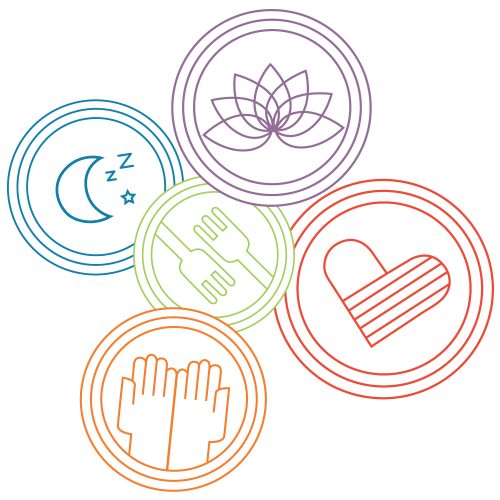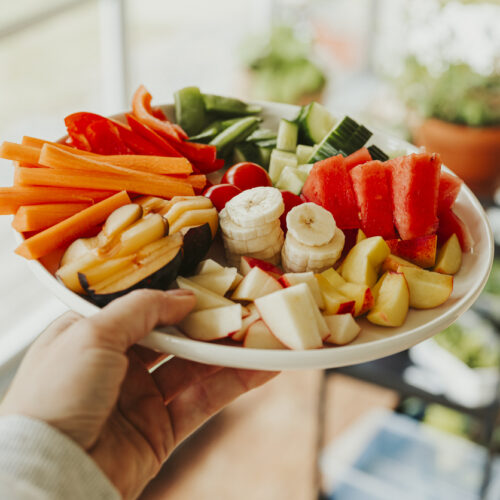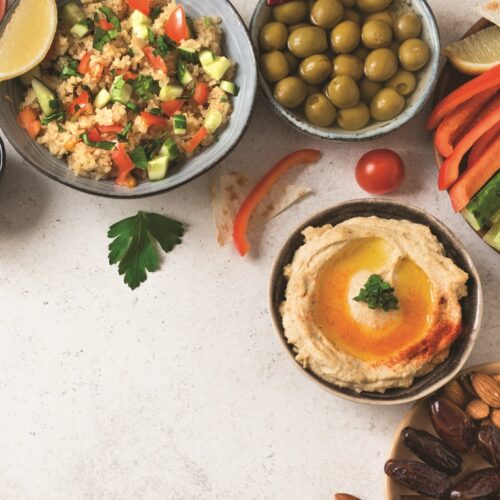
Despite all the noise around nutrition, there is real concensus about what constitutes a healthy diet — and it's not as complicated as you might think.
If there’s one thing that’s characterised the past year in nutrition, it’s noise. By noise I mean the volume of information that floods our senses via traditional media such as newspapers and magazines, and even more in our digital world, online and in social media. There are so many people giving healthy eating advice, offering healthy recipes, recommending ingredients and interpreting — and sharing — nutrition science.
The range of advice and opinions is overwhelming. There are people telling us to eat ‘clean’ — whatever that means (is any other way of eating ‘unclean’?). There’s the raw brigade with their love of ‘cheesecake’ made from nuts and dates rather than cream cheese. There are the paleo people who eat bacon, but not lentils. And the vegans, the fasters and the low-carb-high-fat fans… the lists of what each group considers healthy and unhealthy can seem wildly contradictory.
Amongst all this noise, it can be really difficult to decipher the truth from the hype. Especially when on top of it all, we read headlines and stories telling us that everything we’ve been told up until now about nutrition topic X is actually wrong — and here is the answer instead. When we read things like this, it can make us feel like the experts can’t even agree about what’s healthy! It’s enough to make us give up and go and eat a cupcake.
In fact, the experts do agree about what’s healthy, for the most part. And it is actually not too tricky at all.
When we look at the broad spectrum of credible health advice (by which I mean true experts rather than self-appointed ones), there are some very consistent themes running through what science knows about being healthy. And on these themes there is, despite what we may think, very wide consensus.
Scientists, nutritionists, dietitians and public health experts all, for the most part, agree on some basics about what makes a healthy diet.
What are they? For a start, you wouldn’t find much argument that we should eat a diet made up mostly of minimally processed, plant-based foods in balanced combinations. That means lots of vegetables, fruits, whole grains, beans, lentils, nuts and seeds. People with a wide spectrum of diets and lifestyles agree with this. You might add some fish, dairy, meat, eggs and chicken, if it suits you and you like it.
In doing this, you might naturally eat more or less fat, depending on the types of foods you choose. The same with carbohydrates. If we focus on the foods, the nutrients will take care of themselves.
It’s basic, good, healthy eating advice. It’s not revolutionary, even if it sometimes feels like it. It’s a positive, empowering message.
I’m part of a new initiative that is dedicated to spreading this idea; the idea that we know enough, right now, today, to solve most of our health problems.
The True Health Initiative is a global group of experts and organisations in health, nutrition, fitness and medicine from diverse disciplines who’ve come together to rally around the core truths about disease prevention, health promotion and lifestyle as medicine. The initiative’s founder, Professor David Katz, says: “We have known the fundamentals necessary to prevent 80 per cent of all chronic disease and related premature death for 22 years (at least). Really.” It’s time, he says, for experts to speak with one voice and spread that knowledge above the din of the ‘my-diet-is-better-than-yours’ arguments. Because really, even a vegan and a paleo follower agree more than they disagree about healthy eating.
The True Health Initiative is here to promote the idea that decades of published research support six core principles of healthy living that most effectively add years to lives, and life to years (see below). They are very simple: feet, forks, fingers, sleep, stress and love. If we attend to these things, we have a great chance of living a long and healthy life, and even better, passing that gift on to our children as well. It’s a philosophy that really aligns with ours at Healthy Food Guide, which is why I’m happy to be involved and also happy to bang on about it to anyone who’ll listen. It’s also something I think makes sense to most of us.
So as we start a new year, here’s to more common sense; to getting back to the basics and living like our health depends on it.
Six principals, one voice
1. Forks
A diet comprised mostly of minimally processed, generally plant-predominant foods in balanced combinations (eg. traditional diets of certain Mediterranean populations, certain Asian populations). An optimal diet exerts far-ranging effects on the body and stands to reduce the risk of all chronic disease.
2. Feet
Routine physical activity at moderate intensity, frequency and duration. Physical activity is associated with weight control, reduced inflammation, enhanced immune function and reduced cancer risk specifically.
3. Fingers
The avoidance of toxins, particularly tobacco and excess alcohol.
4. Sleep
Adequate sleep in both quality and quantity. The quality and quantity of sleep has profound effects on psychology, immunology and neurology.
5. Stress
The effective mitigation of psychological stress. Undue stress can contribute to hormonal imbalances and inflammation that propagate cancer.
6. Love
The cultivation of meaningful, supportive relationships and strong social bonds. Clinical trials demonstrate that those with loving relationships are far less vulnerable to chronic disease and death than those without.
www.healthyfood.com










